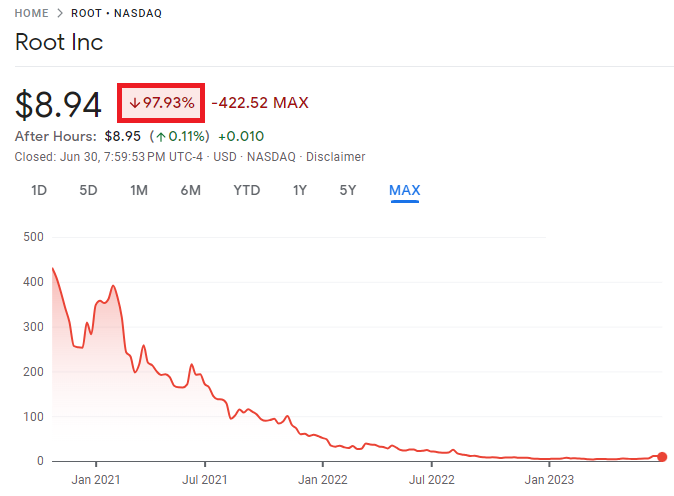It has been a long fall from grace for Root, which went public in October of 2020 with a market capitalization of over $6 billion. The IPO was seen as a big win for Root’s venture-capital backers, especially Drive Capital and Ribbit Capital.
Founded in 2015 and based in Columbus, Ohio, Root is a tech-enabled insurance provider that uses AI and data science to determine customers’ rates more quickly and streamline the claims process. In 2019, the company expanded its reach when it introduced renters insurance.
Root’s public debut came after those of other technology-powered insurance providers including rate-comparison website SelectQuote (SLQT), SoftBank-backed Lemonade (LMND) and Hippo (HIPO).
Such companies were part of a wave of consumer-facing online-insurance startups that went public during the last venture boom. They have since experienced steep selloffs in their stocks, in part because it turns out the companies tend to have higher loss ratios associated with accidents by their customers. Root has incurred net losses on an annual basis since its inception.
The once-highflying Carvana invested $126 million in Root in August of 2021, getting convertible stock and warrants. The companies began a partnership to offer insurance to customers in 2022. Declining used-car prices postpandemic have dented Carvana’s sales and profits—and the value of the agreement for Root.
Root’s Chief Revenue and Operating Officer Daniel Rosenthal resigned from the company earlier this year. Root recently fired its former Chief Financial Officer and Treasurer Rob Bateman for cause, saying only that he violated unspecified company policies.
Hall has sold a number of his previous businesses, including insurance-tech startup Salty Dot, acquired by CDK Global, and Insurance Point, acquired by Arthur J. Gallagher & Co.


No comments:
Post a Comment